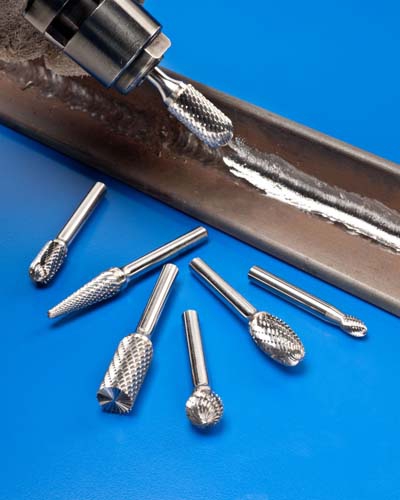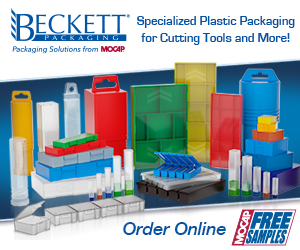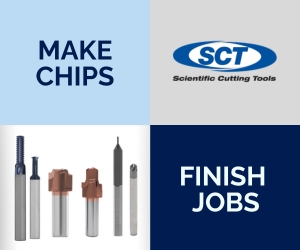
A full line of carbide burs that are offered in a variety of styles and shapes and are ideal for weld preparation and removal applications is available from Rex-Cut Products Inc.
Rex-Cut Carbide Burs are offered in standard-, double-, and non-ferrous cuts in oval, ball, ball nosed tree, and tapered shapes for flat work as well as reaching into tight spaces and corners. Manufactured using grade K20 micrograin carbide and high speed heat treated steel shanks, unlike conventional grinding wheels, these burs leave no residue or contaminants.
Suitable for use on stainless steels, titanium, inconel, and other high nickel alloys, plus cast iron, aluminum, and plastics, Rex-Cut Carbide Burs are clean cutting and remove material fast, according to the company. They come in a variety of industry standard sizes with 1⁄8" and ¼" shanks. Kits are available.
Rex-Cut Carbide Burs are priced from $4.95 ea. (list), depending upon style, size, and quantity. Catalog and pricing are available upon request.
Contact Details
Related Glossary Terms
- alloys
alloys
Substances having metallic properties and being composed of two or more chemical elements of which at least one is a metal.
- flat ( screw flat)
flat ( screw flat)
Flat surface machined into the shank of a cutting tool for enhanced holding of the tool.
- grinding
grinding
Machining operation in which material is removed from the workpiece by a powered abrasive wheel, stone, belt, paste, sheet, compound, slurry, etc. Takes various forms: surface grinding (creates flat and/or squared surfaces); cylindrical grinding (for external cylindrical and tapered shapes, fillets, undercuts, etc.); centerless grinding; chamfering; thread and form grinding; tool and cutter grinding; offhand grinding; lapping and polishing (grinding with extremely fine grits to create ultrasmooth surfaces); honing; and disc grinding.
- stainless steels
stainless steels
Stainless steels possess high strength, heat resistance, excellent workability and erosion resistance. Four general classes have been developed to cover a range of mechanical and physical properties for particular applications. The four classes are: the austenitic types of the chromium-nickel-manganese 200 series and the chromium-nickel 300 series; the martensitic types of the chromium, hardenable 400 series; the chromium, nonhardenable 400-series ferritic types; and the precipitation-hardening type of chromium-nickel alloys with additional elements that are hardenable by solution treating and aging.








